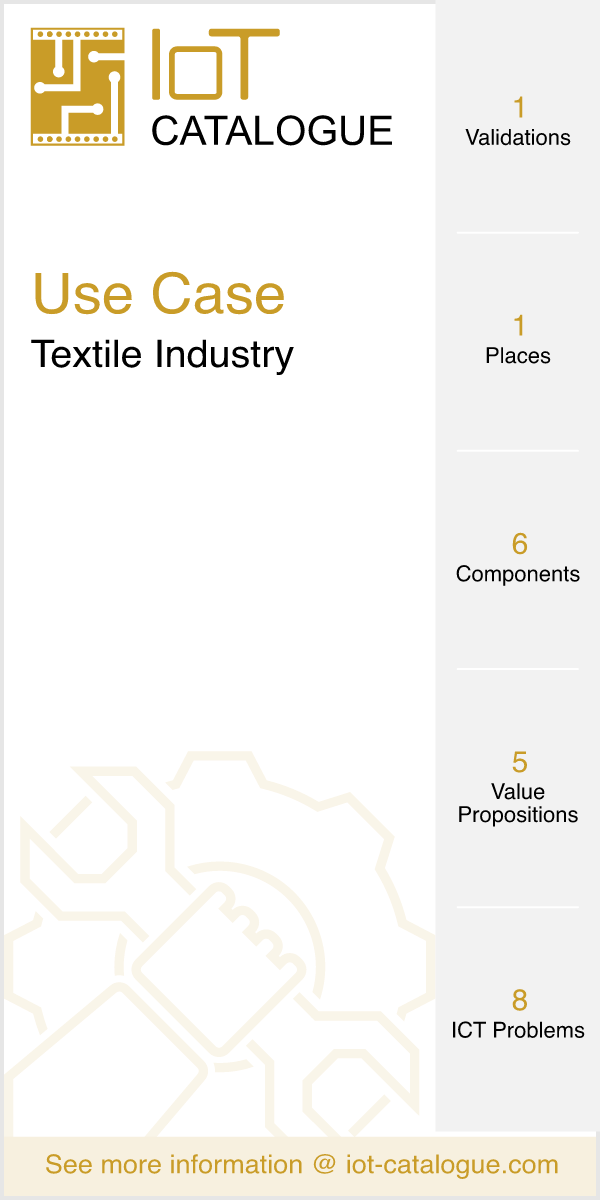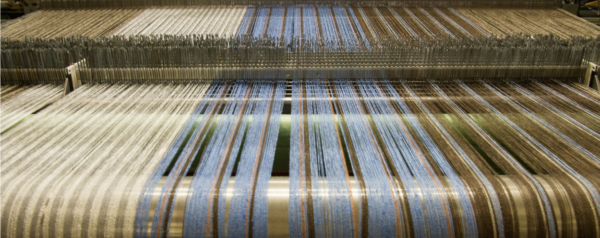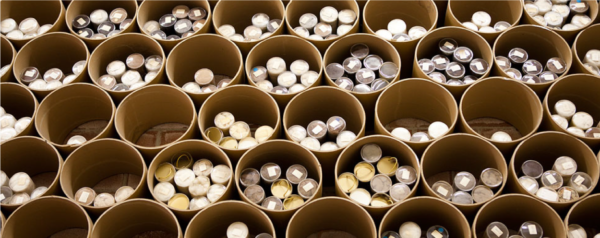Textile Industry
Description
PIA is a manufacturer of fine woollen fabrics, supplier of fabrics to world-leading fashion brand manufacturers (Zegna, Gucci, Prada, Louis Vuitton, and Hermès, among others) that compete on design proposal, customisation and quality of products, having left the cost competition arena.
The organisation of the plant floor in PIA reflects the peculiarities of typical EU textile SMEs. In its machine fleet, especially in those parts of the process which have a direct impact on quality, like finishing or weaving, machines coexist with ICT infrastructure tracing back to 10 years or more. However, in order to address the continuous pressure towards deep customisation of fabrics and the fast reduction of lot dimension, PIA has dedicated significant efforts in the renewal of its ICT infrastructures in order to collect and exploit the produced data and to optimize its complex and inhomogeneous production. The participation in FP7 and H2020, 8 projects has supported the development of an advanced SoA for data collection and management, integrating sensors, MES, ERP and a production scheduler into a single architecture based on Case Base Reasoning.
The Production Unit Controller (PUC) provides a first starting set up to be implemented based on previous cases of the same fabric or similar ones. During the production process, a continuous flow of information comes from the machines and, in case of unexpected events, necessary action suggestions are provided based on previous cases. Data collected by the PUC are also shared with the MES, ERP and production scheduler and with the factory coordinator, at company level. The structure is designed to be open to inputs from outside sources of information, in particular with regards to the quality of input materials (e.g., yarn for weaving) and from inside sources, including incremental output (e.g., fabric quality) and performance data (e.g., machine speed) which can enrich the case database. The latter is critical to provide an action indication contextual with the event detection.
In most parts of PIA’s production facilities, the existing infrastructure is suitable for obtaining data to enable the FACTLOG approach; nevertheless, in specific process steps where older equipment is used, the introduction of additional low-cost sensors may be required for process and product data. The use of cognition to resolve ‘unknown unknowns’, as proposed by the ECT concept, is highly relevant to the production needs, especially with regard to processes like finishing. In weaving, for example, given that all other parameters are constant, an increase in energy use reveals a wearing of components which can lead to an expected stop of production, this being a continuous process. In finishing, on the other hand, where the process is typically “one shot” and the characteristics of the fabric change per each design, this direct data interpretation is not possible; the behaviour of the production elements and their complex relations must be revealed in order to capture the realities of this process. The extension of this pilot test case will also be examined in the final part of the project, exploring the validity of the FACTLOG concept in other departments of textile production as well.





